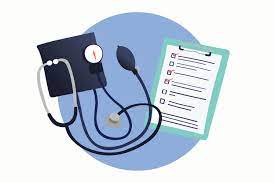
Empowering Wellness: The Importance of Regular Health Screening
The Importance of Health Screening
Health screening is a crucial aspect of preventive healthcare that involves the use of tests and examinations to detect potential health issues before they become serious. Regular health screenings can help identify risk factors, early signs of diseases, and conditions that may not present symptoms initially. By detecting problems early, individuals can take proactive steps to manage their health effectively.
Key Benefits of Health Screening
- Early Detection: Health screenings can detect diseases in their early stages when they are most treatable.
- Preventive Care: Screenings help individuals take preventive measures to reduce their risk of developing certain conditions.
- Promote Healthy Lifestyle: Results from screenings can motivate individuals to adopt healthier habits and lifestyle choices.
- Peace of Mind: Knowing one’s health status through screenings can provide peace of mind and reduce anxiety about potential health concerns.
- Care Customization: Screenings allow healthcare providers to tailor care plans based on individual risk factors and needs.
Common Types of Health Screenings
Some common health screenings include:
- Blood pressure measurement
- Blood tests for cholesterol levels
- Mammograms for breast cancer screening
- Pap smears for cervical cancer screening
- Colonoscopies for colorectal cancer screening
It is important for individuals to consult with their healthcare providers to determine which screenings are appropriate based on age, gender, family history, and lifestyle factors.
In Conclusion
Health screening plays a vital role in maintaining overall well-being and preventing serious health complications. By prioritizing regular screenings as part of a proactive healthcare routine, individuals can take control of their health and make informed decisions to lead healthier lives.
7 Essential Tips for Effective Health Screening: Staying Proactive for Your Well-being
- Schedule regular health screenings as recommended by your healthcare provider.
- Be aware of your family history and share it with your healthcare provider for better risk assessment.
- Follow a healthy lifestyle including balanced diet, regular exercise, and adequate sleep to maintain overall health.
- Stay informed about common health screening tests such as blood pressure, cholesterol, and cancer screenings.
- Don’t ignore any unusual symptoms or changes in your body; seek medical advice promptly.
- Discuss any concerns or questions about health screenings with your healthcare provider to make informed decisions.
- Keep track of your screening results and follow up on any abnormal findings for further evaluation.
Schedule regular health screenings as recommended by your healthcare provider.
It is essential to prioritize your health by scheduling regular health screenings as recommended by your healthcare provider. These screenings are designed to detect potential health issues early on, allowing for timely intervention and treatment. By following your provider’s recommendations for screenings based on factors such as age, gender, and medical history, you can take proactive steps towards maintaining good health and preventing serious illnesses. Remember that prevention is key in safeguarding your well-being, so be sure to stay up-to-date with your health screenings to ensure comprehensive care and peace of mind.
Be aware of your family history and share it with your healthcare provider for better risk assessment.
Being aware of your family history and sharing it with your healthcare provider is crucial for better risk assessment during health screenings. Family history can provide valuable insights into genetic predispositions and hereditary conditions that may increase your risk of certain diseases. By informing your healthcare provider about your family’s medical background, they can tailor screenings and preventive measures to address specific risks, allowing for early detection and proactive management of potential health issues. This proactive approach can significantly impact the effectiveness of preventive care and contribute to better overall health outcomes.
Follow a healthy lifestyle including balanced diet, regular exercise, and adequate sleep to maintain overall health.
Following a healthy lifestyle is essential for maintaining overall health and well-being. Incorporating a balanced diet, regular exercise, and adequate sleep into daily routines can significantly impact one’s health positively. A balanced diet provides essential nutrients for the body to function optimally, while regular exercise helps improve cardiovascular health, boost immunity, and manage weight. Adequate sleep is crucial for rest and recovery, allowing the body to repair and recharge. By prioritizing these lifestyle factors alongside health screenings, individuals can proactively care for their health and reduce the risk of developing chronic conditions.
Stay informed about common health screening tests such as blood pressure, cholesterol, and cancer screenings.
It is essential to stay informed about common health screening tests such as blood pressure, cholesterol, and cancer screenings. Regular monitoring of these key health indicators can help detect potential issues early and facilitate timely intervention. By staying proactive and scheduling routine screenings as recommended by healthcare professionals, individuals can take control of their health and work towards maintaining a healthy lifestyle. Stay informed, prioritize preventive care, and empower yourself with the knowledge needed to make informed decisions about your well-being.
Don’t ignore any unusual symptoms or changes in your body; seek medical advice promptly.
It is essential not to overlook any unusual symptoms or changes in your body when it comes to health screening. Seeking medical advice promptly can be crucial in detecting potential health issues early and taking necessary actions to address them. Ignoring warning signs may lead to complications down the line, so it is important to prioritize your health and well-being by being proactive about any changes you notice in your body. By consulting healthcare professionals promptly, you can ensure timely intervention and appropriate care tailored to your specific needs.
Discuss any concerns or questions about health screenings with your healthcare provider to make informed decisions.
It is essential to have open discussions with your healthcare provider regarding any concerns or questions you may have about health screenings. By engaging in dialogue and seeking clarification on the screening process, potential risks, and benefits, you can make informed decisions tailored to your individual health needs. Your healthcare provider can offer valuable insights, address any uncertainties, and guide you in choosing the most appropriate screenings based on your medical history and risk factors. Effective communication with your healthcare team ensures that you are actively involved in managing your health and well-being through proactive screening practices.
Keep track of your screening results and follow up on any abnormal findings for further evaluation.
It is essential to keep track of your health screening results and take prompt action in case of any abnormal findings. Following up on abnormal results for further evaluation ensures that potential health issues are addressed timely and effectively. By staying proactive and engaged in the follow-up process, individuals can work with their healthcare providers to develop appropriate treatment plans or preventive measures, ultimately safeguarding their health and well-being.



